- Home
- Bryce Courtenay
Four Fires Page 2
Four Fires Read online
Page 2
Then there was Stipendiary Magistrate Oliver Withers, known to one and all as ‘Oliver Twist’. This nickname came about because a magistrate can only impose sentences for petty theft, which is a maximum of two years. Oliver Withers, who hated this restriction on his power, would as often as not ask for a ‘second helping’, in other words, additional time for the prisoner, by referring a case to the district court judge.
Naturally, he was our family’s mortal enemy and was also a lay preacher in the Congregational Church and, although high up in the law, was nevertheless a govern ment worker. Nancy calls him a jumped-up clerk. Because of his government job and his holy-roller religion, he’d never have made the shire council in a month of fire-andbrimstone Sundays.
But, to be totally fair, our side held a couple of muchneeded aces as well. The sergeant of police, Big Jack Donovan, and the governor of the prison, Mr John Sullivan, both belonged to the Catholics. The shire council would rather have disbanded than have those two come on board. Nevertheless, they were men with power hardearned and they knew their way around town and who was up whom.
In our particular family’s case we had more to contend with than simple religious prejudice. Tommy spent as much time inside the prison on the hill as on the outside. More probably. We also had twin aunties, Dot and Gwen, both in the loony bin a little further up the incline, referred to as ‘up top’. All of which didn’t help the Maloney public image a whole heap.
Auntie Gwen, thin as a cinnamon stick, once escaped in the nuddy and went wandering off into the town proper, walking down the main drag, King Street, rosary beads in hand, shouting out her Hail Mary. ‘Hail Mary full of Grace, the Lord is with thee. Blessed art thou amongst women, and blessed is the fruit of thy womb, Jesus. Holy Mary, mother of God, pray for us sinners now and at the hour of our death.
Amen.’
Someone got a hold of Mum, who went to fetch my auntie in the Diamond T and delivered her back to the asylum. Nobody ever forgot that – Mum bringing her mad sister back in a garbage truck. The town tongues were wagging overtime for weeks.
Then of course there was politics, Protestants voted Country Party and Catholics were being asked by Father Crosby to vote for the brand-new DLP (the Democratic Labor Party). He said it was our duty and an order from the Bishop. There were a few fanatics who voted Labor. They passed out leaflets at elections, smoked pipes and never answered a question first off, pretending to think while sucking on their pipe stems. They held poorly attended meetings in local pubs, and said anyone in the Country Party was as stupid as Brown’s cows.
Then there was the final Maloney putdown. To make things worse for our family, we were the town garbage collectors. ‘Maloney & Sons – Garbage’ was what Tommy had painted on the side of the Diamond T and that just about summed it up for the folk from Yankalillee. Mike wanted to paint out the sign but Nancy said that Tommy always fancied himself as a bit of a signwriter and had done it himself and was dead proud of the paint job. We’d just have to live with it, sticks and stones etc.
Tommy had won the contract from the shire council when he returned from the war and all went well for a while until his war wounds started him drinking. He had a crook shoulder and only one good eye and a caved-in cheekbone, his shoulder had been smashed with the butt of a Japanese rifle and he was left with only fifty per cent mobility and his eye was done in at the same time. There were those who said he shouldn’t have got the garbage contract, him being what he was, but he could drive a truck and, despite his shoulder, he could work as hard as anyone lifting garbage cans. He had this amazing technique, he’d sling a can up over his right shoulder and jump up on the running board at the back of the Diamond T and sort of bend and empty the can into the back of the truck all in one movement. He was getting a part disability pension but didn’t qualify for the full TPI when he came out of the repatriation hospital. Probably a good thing, as most of what he got from War Veterans went on grog. Then he started getting into trouble with the law. His first visit to His Majesty’s boarding house up the hill was for petty larceny when he got six months and Nancy was forced to take over the business.
When the contract came up for renewal, Tommy was still in the clink so the shire council put it up for tender. Nancy put in for it, and since nobody else did, the council let her have it. I think it was mostly because the town clerk was a Catholic and the final decision was left to him. Nancy probably became the only woman garbage collector in business in the whole of Australia. That is, if you could call emptying people’s garbage cans a business. She would laugh and say, ‘Well, equal pay for women has to start somewhere, I guess.’ But I don’t think the job paid very well because there never seemed to be quite enough to get us through the month and Nancy had to do her layette work to make ends meet.
Naturally us kids were not that chuffed at being called ‘dirty garbo!’ Nancy said it could have been worse, we could have been the nightsoil collectors and that when the previous operator, Fred Bellows, had died tragically on the job and the contract was up for grabs Tommy had put in an unsuccessful bid for that job as well. His crook shoulder and one eye probably ruled against him this time around.
‘Don’t know how the silly bugger thought we’d manage both,’ Nancy remarked. ‘He was full of grand schemes when he first came back from the war. “Waste disposal, it’s the coming thing, the average person creates fifty pounds of waste a year and that’s only human waste, shit and piss! Then there’s all the stuff they throw out. “It’s a business that’s never gunna run out,” he’d say, “like being an undertaker only you don’t have to handle stiffs.” ‘“Yeah, only turds,” I said.
‘“That’s just it, Nance, that’s my very point! In Borneo, the villagers use human waste to grow their vegies, nothing to stop us doing the same, dry it into briquettes and sell it to farmers, make a fortune, eh?”’
Tommy, of course hadn’t taken the advent of the flush toilet into consideration. A sewage works had been started before the war but it hadn’t progressed very far and the shire council was yet to restart it. But sooner or later it would be completed and that would be the end of Tommy’s dream of briquettes of dried shit for the local farmers.
Some people though did have septic tanks. The Templetons and the Yerberrys and Oliver Twist were supposed to have flush toilets inside the house but nobody we knew had ever seen them. The dunny was still out the back and an indoor toilet was a real status symbol. In fact, we had never been into anyone’s house that had one. Our dunny, like almost everyone else’s, was out in the yard with a little lane leading to the back of it from the street. It had a small door that opened up in the rear so the nightsoil collector could place the can under the toilet seat.
A lot of people in Bell Street and elsewhere used tornup squares of newspaper in their dunny but Nancy said we had to draw the line somewhere and the line was our bums. Somehow we always had shop-bought toilet rolls. Mind you, they had one distinct disadvantage, the paper was shiny on one side and soft on the other and, if you forgot, the shiny side would slip over your bum without getting a good grip, which would often result in a bit of you-knowwhat ending up on your fingers. It was not until much later that I discovered there were toilet rolls with nice soft paper.
Ours was the same as we got in the school dunny so I suppose it was the very cheapest possible but still not newspaper. Fred Bellows, the dead nightsoil collector, had always been a bit of a loner, a huge bloke who could cart nightsoil all night but didn’t have much to say for himself and liked to work on his own, using a huge Percheron, a large grey draughthorse, to pull the wagon that carried the night cans.
Nancy explained that Fred wore this oilskin headgear that fishermen use in storms and you see in pictures on sardine cans. It fits over your head and covers your neck and shoulders. Over this he wore a flat-top tin hat so he could carry the full nightsoil cans on his head. The replacement cans came with a lid, which was removed and placed on the ful
l can so there would be no spillage if Fred happened to stumble in the dark. The lid screwed round the rim and locked firmly into a groove to become watertight.
Well, one night, Fred Bellows removed a night can that must have been pretty damn full and, as usual, he locked the lid into place before he swung it up onto his head. The bottom of the can was rusted and his head, tin hat and all, went straight through it, with the container jamming down onto his shoulders. The oil-cloth headgear prevented much of the contents from leaking out but the rust hole refused to widen and, with the additional aid of the oilcloth, it gripped vice-like around Fred’s neck. Strong as he was, Fred couldn’t pull the can up off his shoulders without ripping his head off as well.
He must have tried to unlock the lid so he could bend over and empty the can in order to breathe, but he couldn’t get the right purchase on the lid. He couldn’t shout out neither, because his head was immersed in you-know-what.
According to the coroner’s report, Fred Bellows died of asphyxiation or, put less politely, he drowned in the town’s shit and so, in a manner of speaking, became a pretty good metaphor for what was happening to our family.
After Nancy told us that story, we agreed being the town garbage collectors wasn’t the worst thing that could happen to a Maloney under Tommy’s parental guidance. Fortunately for us there wasn’t a lot of him around, and our mum, Nancy, together with Sarah, was responsible for dragging us up on a day-to-day basis.
Nancy wasn’t all that superstitious for someone whose ancestors had been Irish. Although we always seemed to be drowning in economic effluent, she didn’t blame fate and believed that people made their own luck. ‘A lot of Australian Irish in our situation think the hand of God is turned against them,’ she’d say. ‘It isn’t the hand of the Almighty that’s against them but the one that brings the bottle too frequently to their lips!’
Nancy didn’t believe in feeling sorry for yourself. ‘Shit happens,’ she would say, ‘can’t help that, but there’s one thing we can all do, eh?’She rose from where she was sitting and said, ‘Follow me.’ We traipsed into the kitchen after her, whereupon Nancy took a large spoon out of the drawer and placed it in the sink directly under the tap. ‘Righto, everyone gather around.’Then she turned on the tap hard and the jet from the tap hit the curved spoon and we were all splashed in the face and over our clothes. ‘It’s a lesson for life, what’s called a metaphor,’ she then said. ‘Maybe we can’t always plan things perfectly, but what we can do is to make sure we take the spoon out of the sink before we turn on the tap.’
This saying became our Maloney motto: Always take the spoon out of the sink before you turn on the tap. If one of us was planning something that could have been a bit dicey, someone in the family would always ask ‘Taken the spoon out?’ You know, looked at every possible angle, anticipated every possible problem before going ahead with the project. Of course this couldn’t have registered with Tommy, because, if it had, I dare say he’d have spent a lot less time contemplating his navel up on the hill.
Like Tommy, we called Mum ‘Nancy’ when she wasn’t looking and ‘Mum’ when she was. It wasn’t a sign of disrespect, she was our mum and we loved her, it was just something that happened between us kids. Mostly because when your father is in gaol a lot of the time, it’s hard to think of him, well, you know, as your dad. You have to abstract him somehow so it doesn’t look as bad as it is. Sarah started it when she said if we were going to call our father ‘Tommy’ whenever we talked among ourselves, then it was only fair to call Mum ‘Nancy’. Mike wanted to know why that made sense. After all, Mum wasn’t a crim.
Sarah said that was precisely the point. Because if Tommy was singled out, it was sort of an insult by us kids to our father, like a denial or something, but if we did the same to Mum then it was okay. Nancy also called him ‘Tommy’ in everyday conversation and seldom referred to him as ‘your father’when talking to us except when she was sad or serious.
Nancy Maloney drove the garbage truck, a big, clapped-out old army-surplus Diamond T Tommy had bought at a US Army Disposal Depot. The Yank sergeant in military transport told him it had a donk like a Texas mule, slow and stubborn, but would go anywhere and never fail to arrive at a destination, that it would virtually last forever. He probably didn’t think we’d take his words literally. The only thing was that the Diamond T ate up tyres and, while we drove them right down to the canvas, the tyre piggy bank, a Milo tin kept on the kitchen shelf, never seemed to contain enough when we needed a new set. When that happened, we all knew it was offal week! Kidneys, tripe in white sauce, ox bollocks, lamb’s brains done in breadcrumbs, pressed sheep’s or ox tongue, and lamb’s fry for the next week or month and nothing much to eat you could buy in a grocery shop.
Sarah, our oldest sister, stayed at home first thing in the morning and got things ready for when we returned from our rounds. I was christened Peter but everyone called me ‘Mole’, because as a baby I’d burrow down under the blankets, even covering my head. I still do.
Me and my two brothers, Mike and Bozo, both older than me, went out in the Diamond T from Monday to Friday with Nancy to collect the town’s garbage.
Nancy was no lightweight and would have gained the respect of any sumo wrestler. Each of her arms could have won prize ham at the Wangaratta Show and her legs were like old-man Yarra trunks. She sat behind the wheel of that big, old garbage truck practically filling the entire cabin with warm, pink flesh. Because it was US disposal, it had a left-hand drive, so the driver’s side was on the wrong side of the road, which caused no end of confusion to other drivers. Especially the local yahoos in their old man’s ute yelling out abuse as they passed us pissed after a bender. They’d be on their way home or out for an early-morning burn and they’d stick their heads out the ute window, only to see no driver where a driver was supposed to be. Sometimes they’d skid to a halt and reverse fifty yards to take a gander and get an earful for their trouble from Nancy.
The three of us used to have to push Nancy up into the driver’s seat, our hands placed flat on her bum with room to spare, our legs propped, straining, our heads down, pushing upwards with all our might. Then, from her position behind the wheel, she proceeded to direct operations.
Mike, Bozo, his five dogs and me would run behind the Diamond T, us boys emptying everyone’s garbage into the truck. ‘Put the bloody lids back on quietly!’ Mum would yell at us, making more noise with her shouting than the clanking bins and the neighbourhood dogs that came out to bark at us.
Bozo’s dogs never joined in the noise. Bozo wouldn’t allow it. They all answered to the same name, ‘Bitzer’, which was what they were, mongrels of every description, except large. Nancy wouldn’t let Bozo have a big dog and her objection had nothing to do with how much it ate. ‘It tells people things about you, you don’t want them to think,’ she said.
Bozo’s dogs all came from the pound in Wang, which is short for Wangaratta, and were more like dogettes than what you’d call a proper dog. Except for the little Fox Terrier–Maltese cross, where you could see a bit of light under its tummy, all of their chassis were pretty low to the ground. They were piebald, smooth-haired, long-haired, furry, curly, pop-eyed, eyes you couldn’t see behind an awning of hair, sprig-eared and floppy, stump-nosed or long-snouted. Several of every combination of small-breed dogs seemed to be represented in each of them. None could, by any stretch of imagination, be called a good-looking mutt. But I tell you what, they were bloody smart doggies for all that.
There were Bitzers One, Two, Three, Four and Five. When Bozo shouted ‘Bitzer!’, just the single name, they all came. ‘Bitzer, sit!’, they all sat. ‘Roll over!’ ‘Jump!’ ‘Play dead!’ They did everything in unison like it was a circus act. But if he called out ‘Bitzer Three!’, the little mutt, who was mainly Fox Terrier and Maltese Terrier with just a hint of sausage dog added to the blend, would come running and sit in front of Bozo, tail thumping the dirt, waiti
ng for instructions. They all knew their own number. Those dogs loved my brother to death and would do anything he said. Also, they wouldn’t eat anything without first hearing the password, which was ‘Bog in!’ That way they couldn’t be fed a poison bait, which was common enough if someone didn’t like your dogs.
If one of the neighbourhood dogs thought to have a go at one of us, Bitzers One to Five would immediately surround him and the errant dog would soon enough show his neck to Bitzer One, a fearless little bloke mostly Dandie Dinmont and Pekinese and a few other things you couldn’t even hazard a guess at. He was the enforcer of the pack. Bozo said when a dog lifts its chin and shows its neck to another dog, in dog language that’s putting up your hands and saying ‘Okay, fellas, I’m outta here!’ Bitzer One, with the others doing the growl chorus, could intimidate a fullgrown Doberman.
In those days the garbage cans were made of tin and we clattered from house to house like an off-key brass band, brakes squeaking as we slowed, pistons rattling like the clappers of hell, the exhaust pipe vibrating, madly spewing out dark exhaust fumes, which polluted the bright, clean morning air as the clapped-out engine, badly in need of a de-coke, over-revved every time we pulled away.
We would start the run at three o’clock in the morning. The route would be different each day because it took a week to do the whole town. But on a Monday we’d begin at number 50 Hill Street, at the home of Oliver Withers, the stipendiary magistrate. Mondays we’d do all the other bigwigs that lived up on the higher part of the hill looking down their nose at the town in the valley below. The magistrate’s house was at the far end of the street, which ended on the edge of a small cliff. We’d go to the end of the street first and turn the empty truck around. The reason for this was so that we didn’t have to make a difficult turn with the old Diamond T full of rubbish in case the brakes failed and the weight took it over the cliff. This meant that Oliver Twist’s rubbish was the first to be emptied and always well before dawn.

 The Potato Factory
The Potato Factory The Power of One
The Power of One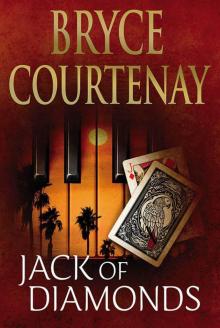 Jack of Diamonds
Jack of Diamonds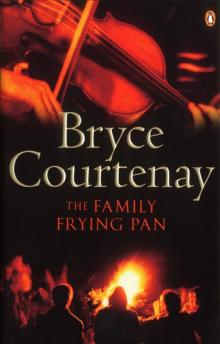 The Family Frying Pan
The Family Frying Pan April Fool's Day
April Fool's Day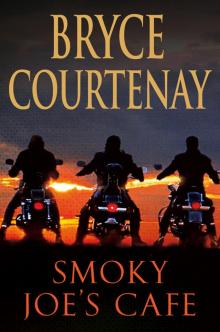 Smoky Joe's Cafe
Smoky Joe's Cafe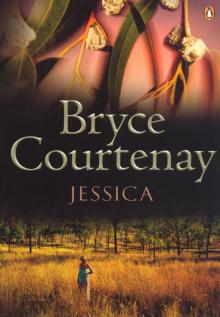 Jessica
Jessica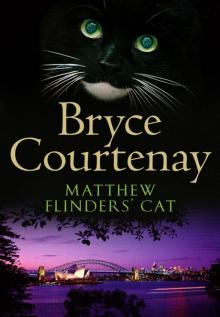 Matthew Flinders' Cat
Matthew Flinders' Cat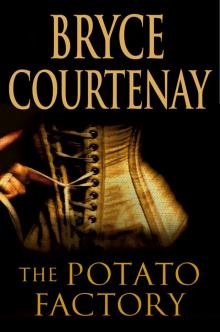 Potato Factory
Potato Factory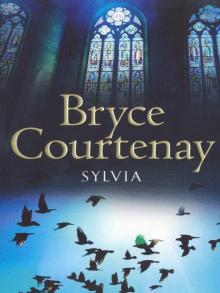 Sylvia
Sylvia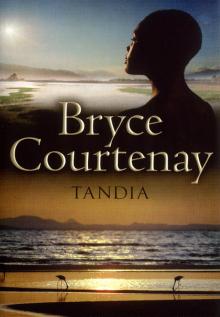 Tandia
Tandia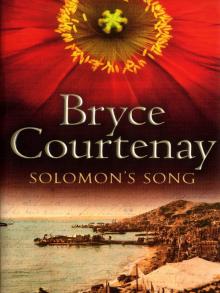 Solomon's Song
Solomon's Song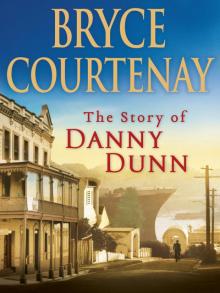 The Story of Danny Dunn
The Story of Danny Dunn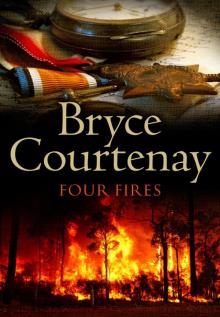 Four Fires
Four Fires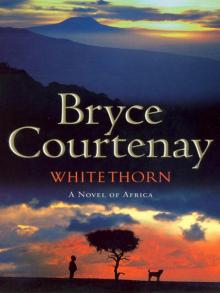 Whitethorn
Whitethorn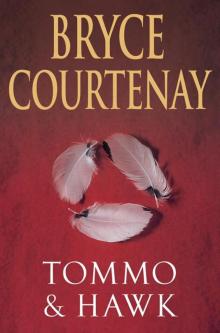 Tommo and Hawk
Tommo and Hawk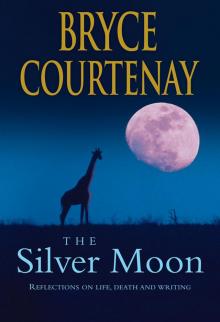 The Silver Moon
The Silver Moon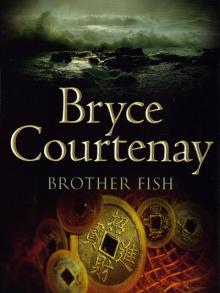 Brother Fish
Brother Fish FORTUNE COOKIE
FORTUNE COOKIE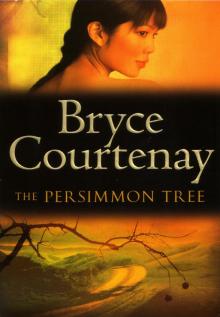 The Persimmon Tree
The Persimmon Tree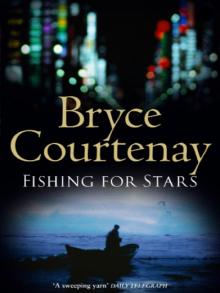 Fishing for Stars
Fishing for Stars